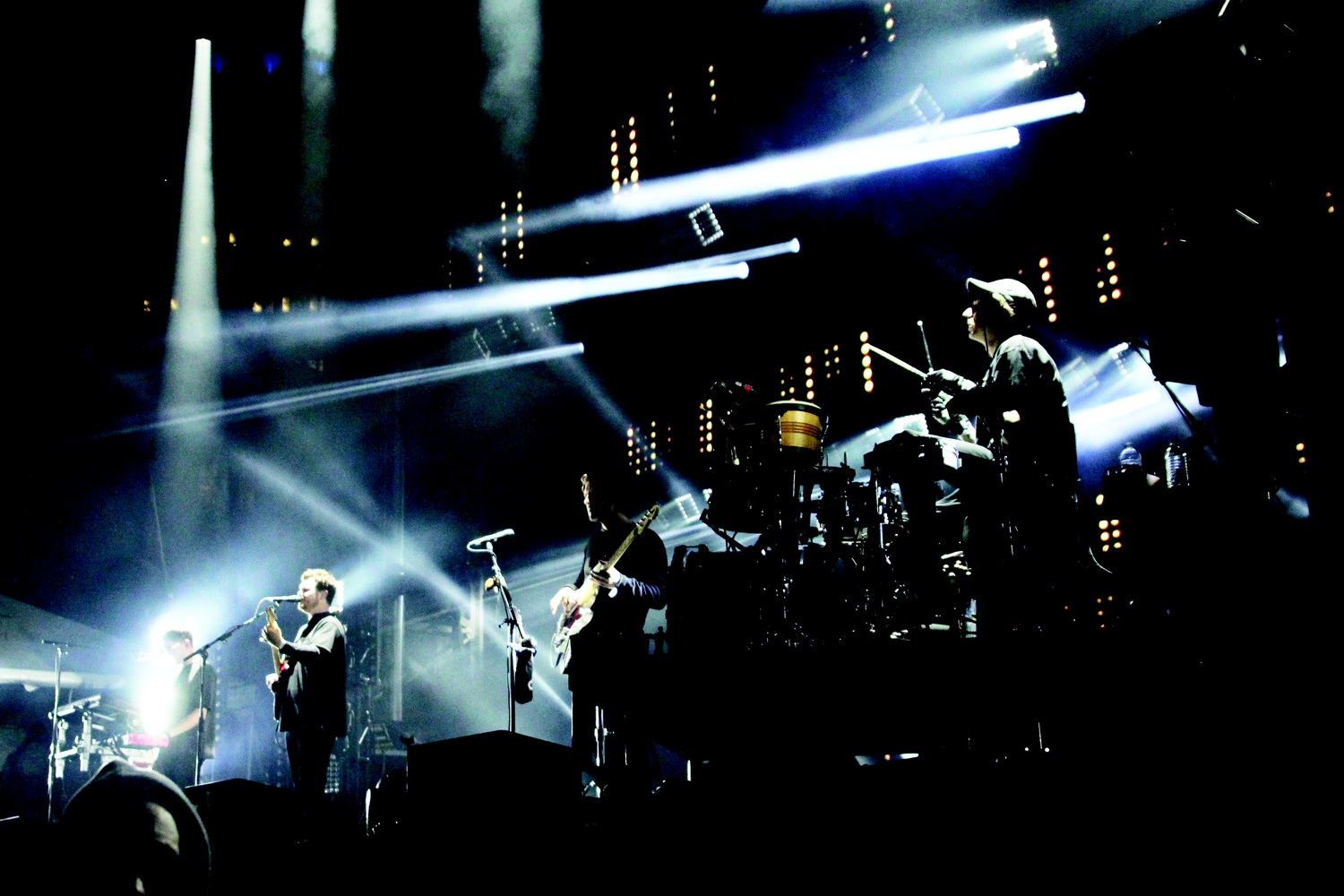
News
Summers Will Not Finish Semester of Teaching as Harvard Investigates Epstein Ties

News
Harvard College Students Report Favoring Divestment from Israel in HUA Survey

News
‘He Should Resign’: Harvard Undergrads Take Hard Line Against Summers Over Epstein Scandal

News
Harvard To Launch New Investigation Into Epstein’s Ties to Summers, Other University Affiliates

News
Harvard Students To Vote on Divestment From Israel in Inaugural HUA Election Survey
Boston Calling September 2015: Alt-J
Alt-J’s Boston Calling’s performance was a delight to listen to—the band performed many of its biggest hits with energy and style. But the sense of hipster-esque remove that characterizes so much of Alt-J’s oeuvre was, on some level, incompatible with that ideal music festival high-energy climax. Alt-J refuses to be poppy—their complex, atmospheric compositions are intended to be bona-fide soundscapes. Their music does not have danceability in mind as a key metric. In the end, Alt-J’s Saturday night set served, for the most part, as a decrescendo to the evening—magnificent, technically stunning, and musically innovative, but a decrescendo nonetheless.
Appropriately, Alt-J started off its set with the song “Intro,” off their debut album “An Awesome Wave,” and the crowd roared as its delicate, rolling melody gave way to an intense, slightly brooding synthline. The band followed with “Every Other Freckle,” a hit off its recent sophomore offering, “This is All Yours.” The warbling, hypnotic number segued into somber, folk-rock lament “Something Good,” off “An Awesome Wave,” which, with its mellow, resigned tone, created something of a lull in the crowd’s energy.
The band followed up with “Left Hand Free,” the highest-charting song off “This is All Yours.” The twangy, southern-rock piece, which Alt-J itself described as “the least Alt-J song ever,” revitalized the audience and drew resounding cheers from the glow stick-equipped crowd. With its catchy, distinctive riff and repetitive lyrics, the number marked a peak in the crowd’s energy.
It’s somewhat telling that “Left Hand Free,” a song very different from Alt-J’s usual offerings, elicited such a visceral response from the crowd. Alt-J’s dominant image is somewhat at odds with the aesthetics of a concert, and this was shown by the band’s feel onstage. Alt-J’s stage presence throughout the festival mirrored the overall tone of their music—slightly impersonal and detached. The band’s frequent use of vocal harmonies over a single voice, combined with the detachment of its overall sound, effectively denied lead singer Joe Newman true frontman status, impairing his function as a focal point for the crowd.
The band’s lightshow further enhanced the group’s slightly distant vibe, with the group often strongly backlit, the members reduced to silhouettes against a complex backdrop of lights. Alt-J’s onscreen presence furthered this impression; extensive editing effectively rendered the band members faceless amidst beautifully colored, quasi-hypnotic background visuals. All this was entirely consistent with their image, but not especially conducive to that sense of personal engagement and in the moment-ness that is so often a main draw of the concert setting.
After “Left Hand Free,” the band played a sequence of tracks from “An Awesome Wave,” including “Bloodflood”, “Dissolve Me”, “Matilda”, “Interlude 2”, and “Tessellate.” After that fugue, and a piece called “The Gospel of John Hurt” from their newer album, Alt-J launched into their cover of Bill Withers’ “Lovely Day,” previously seen as a bonus track on “This is All Yours”. The group’s rich, warbling sound imbued Withers’ R&B hit with a newfound emotional ambiguity, though it didn’t particularly enrapture the crowd.
Alt-J followed up with a few more songs off “This is All Yours” before ending the set with “Fitzpleasure,” a heavy, rhythmic, resonant hit off their debut album. But the crowd, no doubt expecting to hear “Breezeblocks,” their biggest hit to date, demanded an encore. Alt-J obliged, and played three more numbers before (finally!) launching into a spirited performance of “Breezeblocks.” Airy yet intense, alternating between a rhythmic throb and a rolling melodic flow, this final track allowed both the band and the crowd to attain a previously unreached level of energy as the song slowly crescendoed to its syncopated climax.
Alt-J’s image isn’t that of a concert band, and though that dissonance didn’t go unnoticed, the group’s undeniable musical chops made their set strong, though not quite historic.
Want to keep up with breaking news? Subscribe to our email newsletter.

